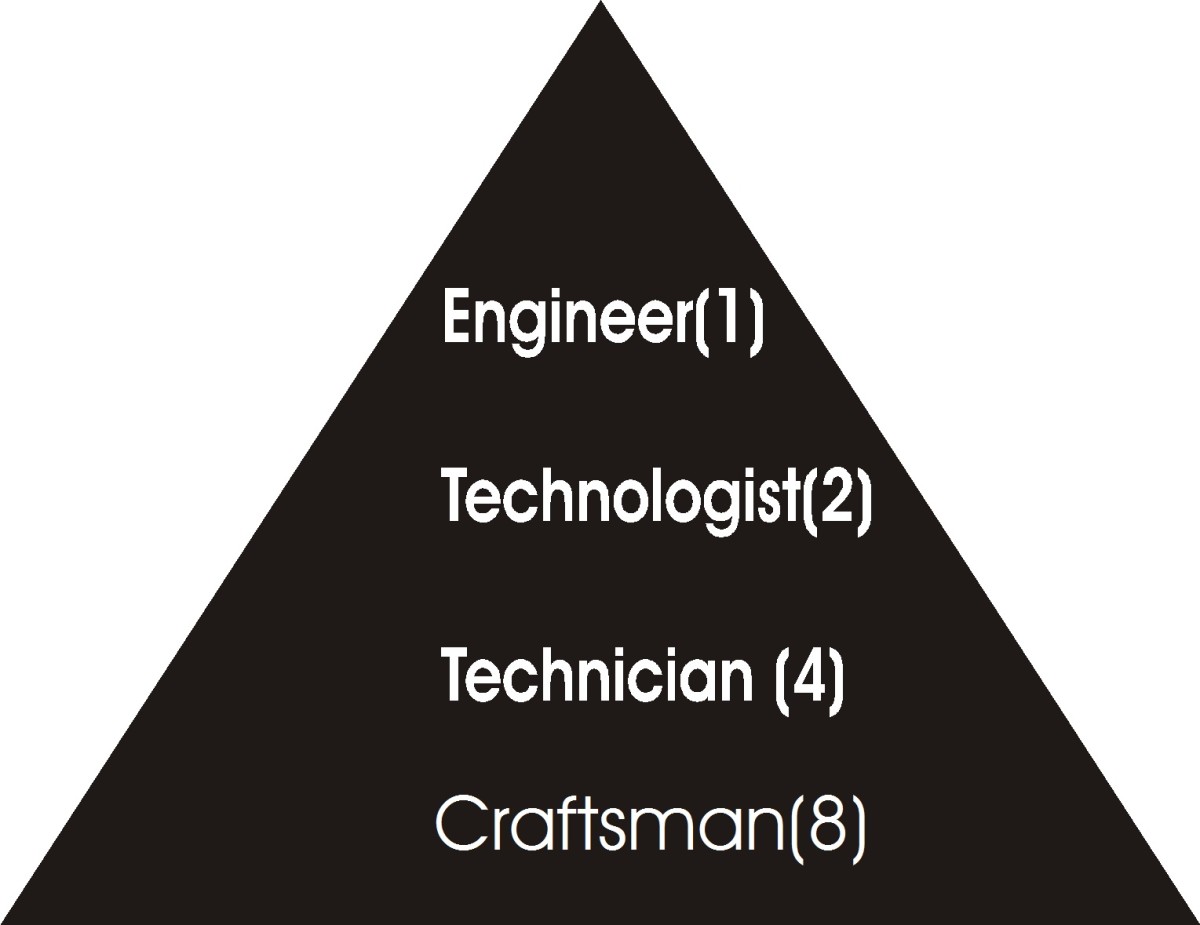How to Become an Engineer
Engineers have some of the best jobs improving the automotive, aerospace, chemical, manufacturing, transportation and utilities industries. Learn about the process to becoming an engineer and where to start.
How Long it Takes to Become an Engineer
Engineering is a serious course of study. It requires education and on the job experience before you can consider yourself an engineer.
Four Year Degree
A degree in engineering is a 4 year Bachelor of Science degree. Due to the difficulty of the coursework, it is common for a student to take 5 years of more to complete the degree. According to ASEE’s 2017 report, just over 30% of undergraduate engineering students finished their degree in 4 years.
This degree covers advanced math and physics and how to apply it. The specific courses taken will depend on the najor the student is pursuing. Throughout the four years of studying students will complete labs and sometimes fieldwork to get more familiar with work in their future industry.
Internship
Internships help engineering students gain work experience during college but they’re not strictly required to officially become an engineer.
Some small specialized engineering schools in the United States will require students to complete an internship or co-op before graduation.
Professional Certifications and Exams
Unlike lawyers and doctors, not all engineering students have to pass an exam to begin working as engineers. The exception to this is the FE (Fundamentals of Engineering) exam that is required to start working towards a Professional Engineering license, which is discussed more below.
Each industry will have it’s own certifications that driven employees can pursue to advance their career. But for engineering these certifications and exam are rarely required in order to begin. For most hiring managers it is the on the job experience that they want to see when considering candidates.
Steps to Become An Engineer
There are a few basic steps to take to become an engineer. The details of each one will vary widely based on the specific industry you’re in.
- Complete Education.
- Gain Work Experience.
- Get Hired as an Engineer.
Ideally, the education will be a four year degree from an ABET accredited college. But, as we’ll discuss below, this could be an Associates or a related tech degree or no degree at all with enough related work experience and on the job training.
For gaining work experience this is usually a paid internship in the industry you want to work in. Or it might be a research assistant position at your school or as part of a volunteer project.
Landing a job with an “Engineer” title can be difficult in a competitive job market. This is where good grades from your education and relevant work experience will pay off. Once you’re collecting a paycheck for engineering work you’re considered an engineer.

How to Become a Professional Engineer (PE)
A Professional Engineer, or PE, license is required for specific sectors of industry. Most contractor positions that need you stamp or sign off on drawings for construction need a PE license. Civil or Structural Engineers will be most interested in this career path.
Earning your professional engineering license is a multi-step process:
- Graduate from an ABET accredited institution
- Pass the FE (Fundamentals of Engineering) Exam
- Work for 4 years under a practicing PE
- Pass the PE Exam
Complete the steps above and you’ll be able to get your Professional Engineering license. You will need to continue attending workshops and classes to keep your license up-to-date.
Getting a PE license obviously takes a lot of time and work. But it qualifies you to do higher responsibility and higher pay work.
Become an Engineer Without a Degree
Can you practice as an engineer without a Bachelor of Science (B.S.)? Technicians working their way up to an engineering title after years of experience is not unheard of. Techs that have any undergraduate degree have an advantage over those who did not graduate college.
Whether it’s accurate or not a college degree is still an important signifier that you can work hard and have the technical skills the job requires.
The most likely place for employees without an engineering degree to get into a position with an “Engineer” title is in small to medium sized companies. Most large companies will having hiring requirements that won’t let you get around not having a degree.

Transition to Engineering Mid-Career
It might seem like the most common path to become an engineering professional is graduating from a four year school immediately after high school and then getting a job in industry. But that is the story of a minority of the engineers in the workforce today. There are so many other paths to an engineering career. Even if you’re well into your 20s or 30s, there’s no reason to think it’s too late to get into engineering.
Attending an undergraduate program as a 30-something or 40-something might seem uncomfortable but you likely have more drive and proven real world experience than recent high school graduates. Older students have a better grasp on what their education means for their careers and their futures than 20 year olds do.
Previous work experience is highly valued by hiring managers, especially if it’s really relevant to the job. If you have experience and knowledge from a related field you will have an advantage over the 22 year olds graduating with little or no experience.
What It Takes to be an Engineer
What does it take to be an engineer? We learned above that you don’t necessarily need a 4 year degree or to have completed it immediately after high school. Also a PE license isn’t required for most engineering jobs out there. So what sets the engineers apart from the rest of the technical jobs?
Strong Technical Skills
Obviously in order to work as an engineer your grasp of the fundamentals of mechanical, electrical, civil or whatever your industry need to be really strong. A diploma for a B.S. in engineering shows that you have this. If you didn’t get a degree you’ll need something else that showcases these skills.
Big Picture Understanding
In school the problems you face can be solved with equations. In the real world there’s budget, schedule and political problems that can’t be solved just by plugging in numbers. Engineers are able to understand how their designs will impacts all these areas.
Communication Skills
Engineers aren’t exactly known for being social extroverts. But clearly communicating your ideas and working with others is a must to contribute to technical projects.
This content is accurate and true to the best of the author’s knowledge and is not meant to substitute for formal and individualized advice from a qualified professional.
© 2018 Katy Medium








